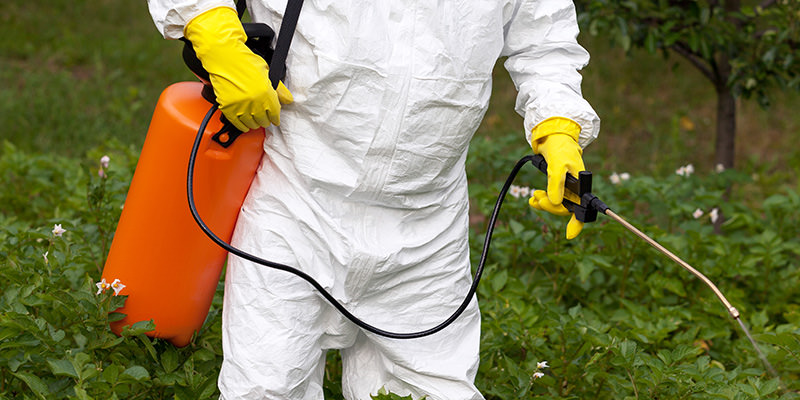In a world full of green juice, acai bowls, and whole-grain everything, we as consumers are bombarded with all things “natural.” “Regular,” non-organic food and beverages just don’t make the cut anymore. We’ve been molded by the market to feel some sort of shame, a guilt, even, when purchasing that non-organic bag of apples or “regular” head of lettuce at our local supermarkets. And this same mentality has trickled down into the wine world, with the words organic and biodynamic used to set some sort of elevated status to the bottles that bear them. The messaging is as clear as it is ubiquitous: Drink organic wine for a more environmentally friendly experience, choose an organic bottle for a better tasting wine. But just how accurate are these claims? Are we really getting a better tasting bottle of wine when we shop organic?
Let’s start by defining our terms, which turns out to be more complicated than you may have thought. The reason for this is that the exact definition of organic wine differs between the U.S. and Europe. In America, organic wine is defined as “a wine made from organically grown grapes without added sulfites.” In Europe, the precise definition of organic wine is “a wine made from organically grown grapes that may contain added sulfites.” Very similar, yes, but this slight difference is actually huge. Sulfites have become just as hot a conversation topic as organic farming. Many people believe that sulfites cause hangovers (they don’t). Sulfites, which act as a preservative against oxidation and spoilage of wine, are a naturally occurring byproduct of fermentation, though they only occur naturally in very minimal quantities. Many, if not the majority, of winemakers, add sulfites at the end of their winemaking process to keep the wines intact, allowing them to travel (and when appropriate, age) without spoiling. This is where organic gets tricky. Basically, in America, for a wine to be organic, the addition of these powerhouse preservatives is forbidden, whereas in Europe, they are allowed. That’s why you’ll see “Made With Organically Farmed Grapes” on American bottles. This shortcut allows for that all-enticing “organic” to be placed on the label, while still adhering to the guidelines of the USDA.
So what does organically farming your grapes mean? It’s as simple as this: Farming organically, no matter which country you’re in, forbids the use of artificial fertilizers, pesticides, or herbicides within the vineyard. Instead, the vines are forced to naturally ward off pests and weeds, strengthening their resistance over time. According to Mayo Clinic, these farming practices are “designed to encourage soil and water conservation and reduce pollution.”
Don't Miss A Drop
Get the latest in beer, wine, and cocktail culture sent straight to your inbox.Are your organically farmed grapes better for the environment? Absolutely. But do they actually taste better and make better wine? Not necessarily.
Just because someone’s grapes are farmed organically doesn’t necessarily mean that their wines are going to be better, even if they are working with a higher caliber of grape. Let’s not forget that wine goes far beyond the grapes. The winemakers and their skills are just as important as the fruit itself, if not more so. Does the freshest produce in the world make the best tomato sauce? Maybe, if an incomparable chef’s unparalleled touch lays hands on those ingredients. But without the craftsman, where does the quality of the craft stand? Your potentially succulent sauce is just a heaping pile of smashed tomatoes if the skill set is not there. But hey, at least that pile is organic, right?
But the argument goes beyond that. Winegrowing regions lie between 30 and 50 degrees in each direction of the Equator, with some of the the world’s greatest sites dancing along the cusp. Take Champagne. Champagne produces some of the greatest, highest-quality, most expensive wines in the world, and hardly any of them are organic. It’s because the region of Champagne sits predominantly around the 48-49 degree northern latitude mark, making it almost impossible for grapes to grow. The weather conditions that those grapes endure are extreme. The region is often plagued by freezing temperatures and abundant precipitation, and while the grapes can withstand these intensities, they can’t always sustain them on their own. Herbicides and pesticides are often necessary to keep disease at bay and ward off the negative aftermaths of these extreme weather conditions. In the end, the wines aren’t labeled organic, but are they of any less quality or do they taste worse? Of course not — they are Champagne! These bottles hold the standard as the highest-quality, best sparkling wines in the world. Hypothetically speaking, if you’re presented with a bottle of organic Prosecco or a “normal” Champagne, which one are you going for? Of course you’re going to go with the non-organic Champagne!
We’re not trying to demean organic farming. In fact, we are actually huge proponents of the practice. In an age when winters can see zero snowfall and February presents 65-degree days, we’re all about partaking in any sort of sustainable change to help the environment, and that most definitely includes farming practices. But as consumers, we are so quick to fall into the groove of shopping with this one-way street mentality that we neglect to consider other outlying factors that are imperative to the sustenance of certain markets. With an “organic-only” mindset, Champagne would essentially be no more; where’s the fun in that?
But the argument goes well beyond Champagne, to all of the other producers farming non-organically in regions all over the world, from Burgundy, to Washington State, to the southwestern tip of Stellenbosch. To all our non-organic grape growers out there — we got your back, and will definitely toast (with Champagne, perhaps!) to all of the delicious bottles you provide us with, year in and year out.

